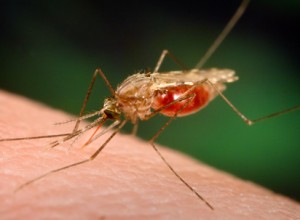Bayer develops new insecticide for malaria vector control
 Bayer, a German multinational, pharmaceutical and life sciences company, has developed a new insecticide for malaria vector control which has proven to be effective for use in Ghana.
Bayer, a German multinational, pharmaceutical and life sciences company, has developed a new insecticide for malaria vector control which has proven to be effective for use in Ghana.
This is based on the findings of a trial test conducted by the Noguchi Memorial Institute for Medical Research (NMIMR), in collaboration with the National Malaria Control Programme (NMCP) on cement and mud-plastered walls in some sentinel sites.
Dr Keziah Malm, the Manager of the National Malaria Control Programme (NMCP), said the intervention was to help tackle the present challenge of insecticide resistant to mosquitoes, which had been recognised as one of the biggest threats to the gains made in the fight against malaria over the past 15 years.
She explained that Bayer Environmental Science, has since completed a study in Ghana by the NMIMR, in collaboration with the NMCP on the Fludora Fusion, which was the new combination insecticide for Indoor Residual Spraying (IRS).
Dr Malm who was addressing scientists and researchers at the dissemination on trials of the Fludora Fusion in Accra, said current high pesticide resistance was largely a consequence of the resilience on a limited number of insecticide classes for vector control.
She said there was an urgent need for new modes of action in malaria vector control as well as new strategies to preserve the effectiveness of both existing and newly available insecticide classes.
She commended Bayer for the intervention, welcoming it as a good start for increased competition investment into research and production of more brands of products, thereby lowering prices of insecticides and other government expenditures on malaria vector control.
Ms Otubea Owusu Akrofi, the Head of the Vector Control Unit of the NMCP, gave an overview of the insecticide resistance profile and IRS in Ghana, indicating that the country had a vector policy which allowed for the pursuance of several interventions.
She cited how the introduction of the Long Lasting Insecticide-Treated Nets (LLINs) and chemicals, had worked well in reducing the malaria burden, especially in endemic communities across the country.
“However, the current massive vector resistance to the insecticides has become worrying, hence the proposed partnership to build strong data, to enable the Insecticide Monitoring Team to effectively generate information patterns of the use of these chemicals”, she said.
Dr Samuel Dadzie, a Researcher at the NMIMR, presenting the trial results, said residual efficacy assessments from both cement and mud-plastered walls were conducted in some experimental sites.
He said the experimental hut trials showed that the Fludora Fusion combination of clothianidin and deltamethrin provided the longest residual activity of all tested products.
It further showed the potential to offer the most effective protection compared to the additionally tested single insecticide products, he said.
Dr Dadzie explained that on cement surfaces Fludora Fusion lasted up to 10 months which was three months more than the best of the alternatives, and on the more challenging surface mud four months, which was also two 2 months more than the best of the alternatives.
He said the conclusions of the findings in the experimental hut trials therefore showed that Fludora Fusion performed well for indoor spraying and therefore could be used as one of the insecticides for IRS in Ghana.
Source: GNA
